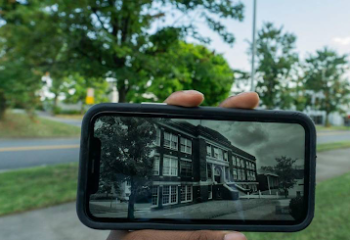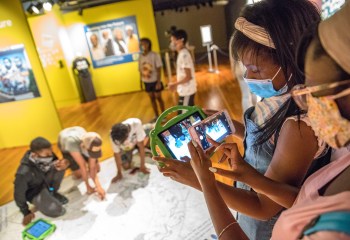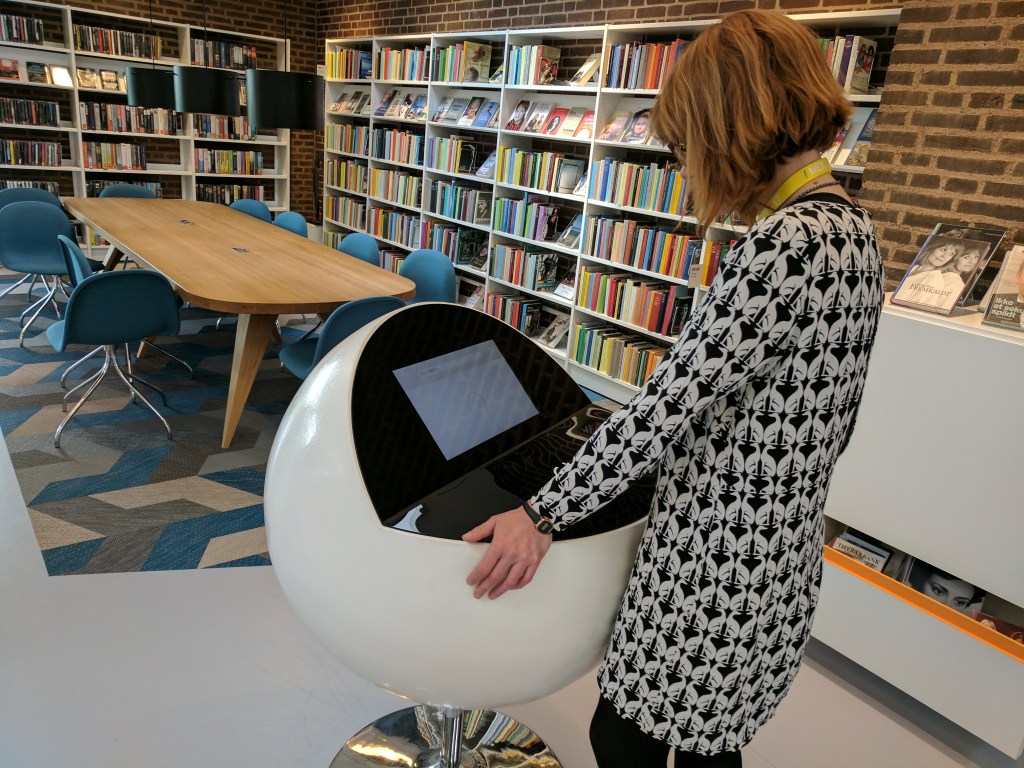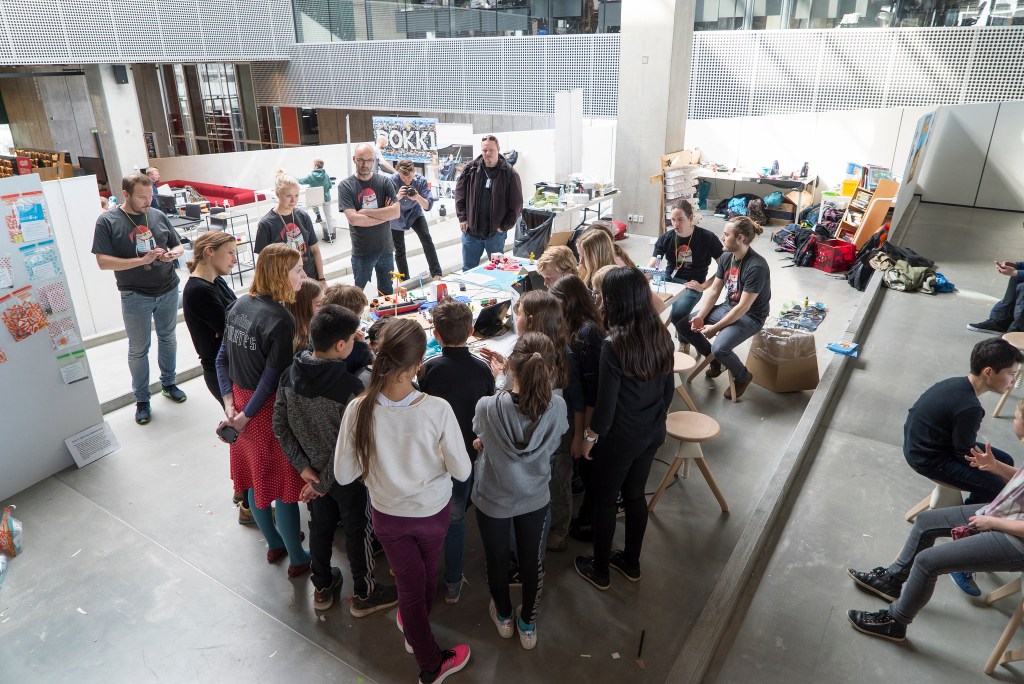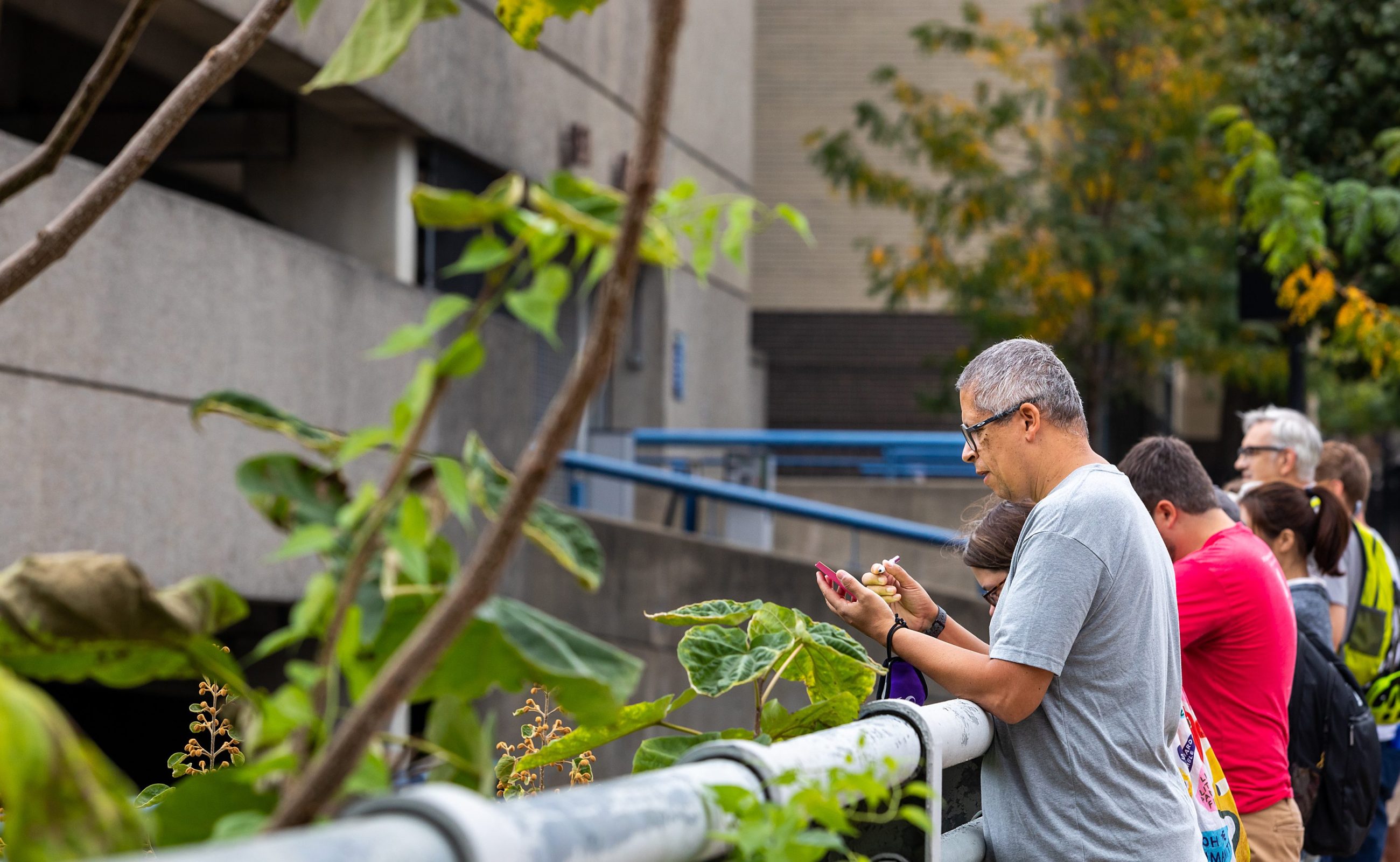
When it comes to smart cities, the past is prologue
On March 8, 2022 Knight announced a combined investment of more than $4 million in eight organizations that are building more engaged communities through the use of technology, data and smart city strategies. Lilian Coral shares more below.
As part of Knight Foundation’s commitment to nurturing a well-functioning, representative democracy, we are working to harness the application of digital technology to help create an informed and engaged community.
As we enter the third year of a global pandemic, this mission feels more important than ever. Despite the massive, unanticipated changes we’re experiencing, we’re as committed as ever to ensuring communities have the tools they need to determine their true best interests and fully participate in the democratic process.
One way we’re investing in making that happen is through Knight’s Smart Cities program, which seeks to understand how technology is shaping communities and how we can harness its power to best serve residents. So far, Knight has invested $37.5 million to support stronger, more engaged communities by enabling the voice of the residents to be reflected in the design and use of technology. In the last year, our Smart Cities Lab convening exposed how critical technology is to informing communities – especially in times of stress.
Fundamentally, despite all that’s new in the world, we’re still looking at the same question: how does technology make a difference in people’s lives as they participate in the life of their common community? We know that change is hard, and often frightening. Those feelings can lead to skepticism of the role that technology can play – a skepticism that can be helpful as we work to avoid unintended consequences. Nevertheless, we’re intent on finding ways that we can push boundaries to make our communities safer, stronger and more equitable.
We’ve seen that our grantees grapple with a wide array of opportunities, disparities, inequities and solutions. Yet, overall common themes repeatedly emerge:
- Having participatory communities is key in broadband and digital inclusion. We can’t make good decisions unless the voices of affected communities are engaged in conversation. That wisdom is a critical element of building out effective and sustainable connectivity in cities.
- Holistic use of data can help the government at every level. We’re seeing community transformations of epic proportions, and we recognize that all levels of government – federal, state and local – can benefit from strategic use of data tools. Ensuring that governments have the capacity to benefit from joint and holistic use of data is critical to efficiently and effectively providing the services on which residents depend.
- Empowering individuals. The best use of data doesn’t just depend on institutions; individual residents, as well as individual government leaders, need tech literacy . Equipping people with skills, data and opportunities is key to our shared success.
- Online opens doors. Digital applications have maximized our grantees’ ability to function during the pandemic. Our funding has leveraged this moment of great societal changes in ways that allowed communities to transform moments of transition into moments of opportunity.
- One legacy of the pandemic will be digital. We’re all looking forward to getting back to “normal” but the tools and conveniences developed during the pandemic aren’t going anywhere. Cities are responding to and embracing this opportunity by developing more comprehensive plans for digital community engagement moving forward.
In light of these learnings, we’re thrilled to be announcing more than $4 million in our latest round of Smart Cities investments. The recipients of our investments are the Centre for Public Impact North America (CPI), Beeck Center for Social Impact & Innovation, US Ignite, Rockefeller Philanthropy Advisors, Harvard University, Foundation of the University of North Carolina at Charlotte, Avenue North Renaissance and Coding It Forward. Each of these groups, based in cities across the U.S., will continue to show us new ways of thinking about the way technology can strengthen communities and allow them to take advantage of what we’ve learned so far.
The new investments will support innovative initiatives such as: an open call for cities for a multiyear initiative that will leverage open data to help local governments develop technology-based solutions for community needs; a digital dashboard that tracks the global effects of climate change and connects community leaders to discuss efficient mitigation strategies; and technical assistance to Knight communities to develop plans for deploying broadband investments in underserved areas.
We’re excited not just about what our partners will do over the next year, but about what they’ll teach us in the years to come. We’re eager to leverage past successes to create even bigger successes in the future. And when it comes to engaging our communities with smart, effective technology, the sky’s the limit.
Lilian Coral is the director of national strategy and digital innovation at the Knight Foundation.
Image (top) by Philadelphia’s The Rail Park
Recent Content
-
Communities and National Initiativesarticle ·
-
Artsarticle ·
-
Communities and National Initiativesarticle ·
